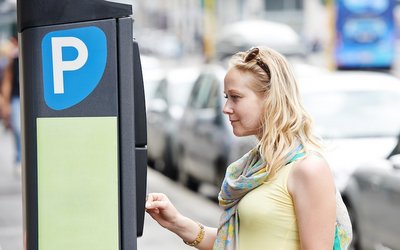In a recent article from SFGate, Donald Shoup suggests that parking meters could be made more attractive politically by utilising technology which gives cities the option to offer discounts to local residents.
By using pay-by-license technology (linking payment information to license plates), municipalities can now structure pricing systems which recognise and favour their residents. Smart meters can be programmed to give discounts or free periods to cars with registered plates, thereby delivering a “deal” to residents, and possibly improving patronage of local businesses. Drivers use mobile phones or enter the license information on the kiosk, which links to the database of all registered vehicles in the city, thereby allowing the real-time application of the discount.
Armed with registration details and car engine information, municipalities could also use these smart meters to encourage residents to meet environmental goals by rewarding smaller, more efficient, less polluting cars with their pricing, and penalising those that cause more pollution. (A scheme such as this has already been implemented in Madrid, as reported in our Blog recently.)
“Price is the most reliable way for cities to send signals about the behavior they want to encourage, and parking meters can easily send these price signals,” Shoup explains.
Meters can produce printed receipts showing the discounts for residents or efficient vehicle usage, and this helps to reinforce the benefits of behaviour and the smart meter system. While no one likes to pay for parking, Shoup suggests another way to gain voter support for meters is to link the revenue collected directly to local projects that will be funded, so that people who live and work in the area can see the meter revenue put to work.

